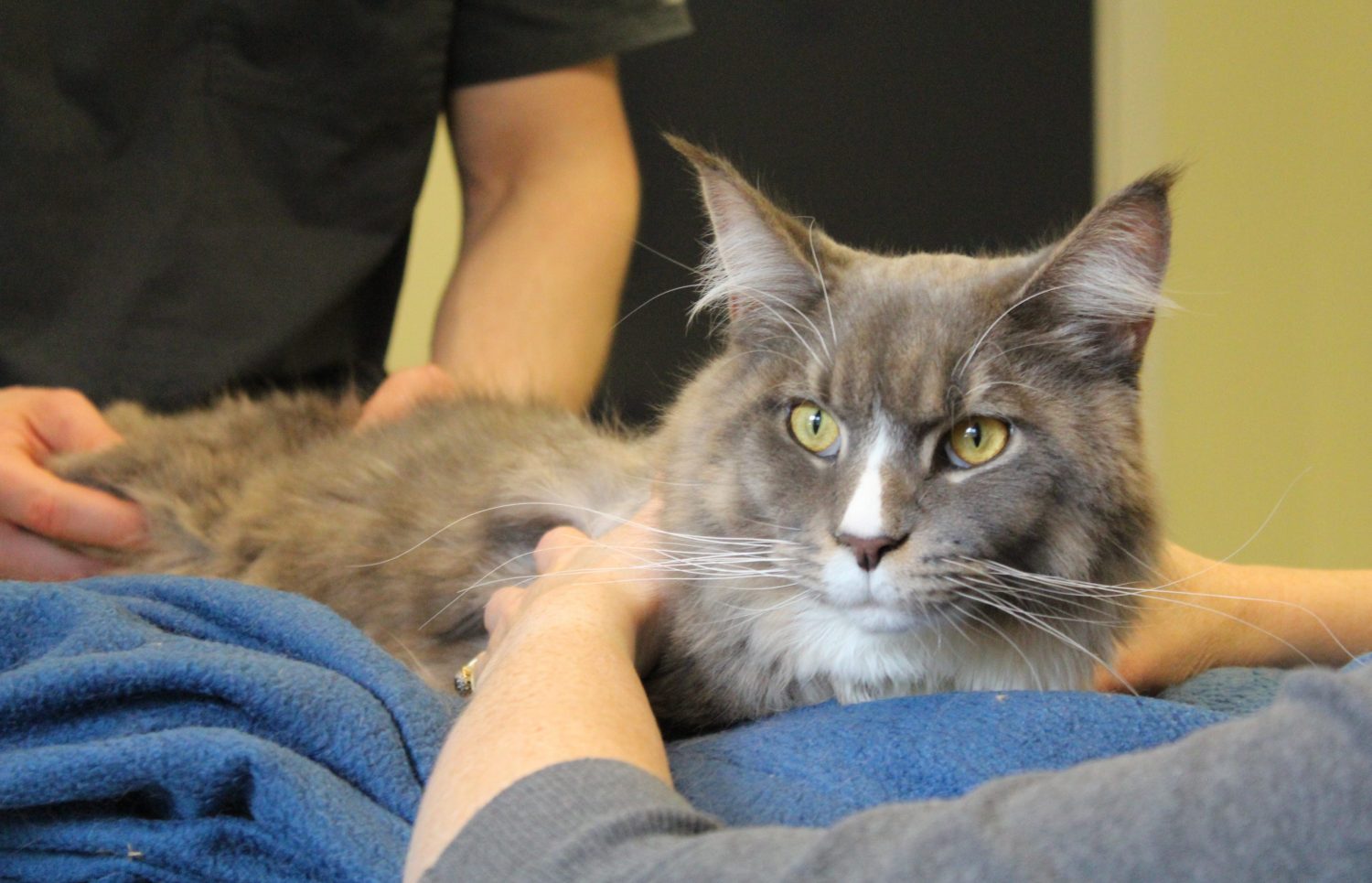Max beats rare spinal condition

Max, a one-year-old Maine Coon, started to develop problems with his movement which limited his walking and jumping.
He was referred to Together for Animals member the Animal Health Trust (AHT), however the cause was difficult to determine. It did not seem to be neurological at first, however Max’s symptoms worsened to the point that he could barely walk at all and an MRI scan was performed to get a good look at Max’s spine.
The scan revealed a tumour underneath one of Max’s vertebrae which was compressing his spinal cord and affecting the movement in his back end. Because of the location of the tumour, surgery was an option but the prognosis was poor.
Max’s condition was very rare and he deteriorated quickly, to the point he couldn’t move his back legs at all. Surgery was his only chance to remove the mass, and then wait for the test results.
Max’s owners, Marie and Nick, battled with the tough decision whether to go ahead with the major operation. With such little information about the prognosis, they wondered if they were unnecessarily putting Max through more pain and discomfort for little or no gain. However, Max was barely a year old and his family decided he deserved a chance.

Following the surgery Max stayed at the AHT for two weeks while he recovered enough to go home. For two months, Max required daily physio at home with regular trips to the see the AHT’s dedicated physiotherapist, Matt Scott.
Progress was slow, but it was clear that Max wanted to be up and moving again and eventually he started to bear weight on his back legs. Six months after the surgery, Max was discharged from the AHT with a very positive outcome. Although a little wobbly at times, Max is now walking, running, playing and living a very happy life again!
Max’s test results came back as a vertebral angiomatosis, which is a very rare benign condition where there is an abnormal growth of small blood vessels involving multiple types of tissue. AHT’s specialist vets are only aware of five other cats with the same condition to have ever been recorded in veterinary literature to-date, so it’s not possible to know if the tumour will come back, or when.
Marie, Max’s owner, says “It’s been an incredibly tough year, full of ups and downs and I really questioned whether surgery was the right thing to do, but we didn’t want to have any regrets. The worst point was when Max came home after the operation. He couldn’t use his back legs at all, had to drag himself around and couldn’t use the litter tray or eat or drink unaided. It was heart-breaking. But the fact that he survived the operation and was determined to keep trying meant we had to do everything we possibly could, too.
I’d never heard of cats having physio before, but with his mobility issues, it made perfect sense. Matt Scott, the physio, was outstanding with Max. Matt was so calm and really won Max over; he never had any issues performing the physio on Max at the AHT. At home things were a bit more challenging, especially when Max was starting to feel mentally better, but we got there.
“Now, Max is great! He’s almost completely back to normal. He’s a cheeky boy again, affectionate and loves playing with our other cat, Luna. He still can’t quite jump fully but he has adjusted and pulls himself up onto the sofa if he can’t quite manage. He just adapts and doesn’t let it bother him!
We don’t know how long Max will be like this for, there is nothing else medically that can be done, but we know that as long as Max is happy, we will love and adore him. The AHT were absolutely amazing with their expertise, professionalism, care and true passion for animals. In our experience, we are so eternally grateful to Fabio (Max’s surgeon) and his superb team (especially Elena and Guilia) for carrying out the surgery and all the post-op care.
The daily updates we received while Max was in the hospital were out of this world. Once Max came home, we had weekly reviews with neurology and physio and we knew they were always on the end of a phone. AHT are simply the best!”.


